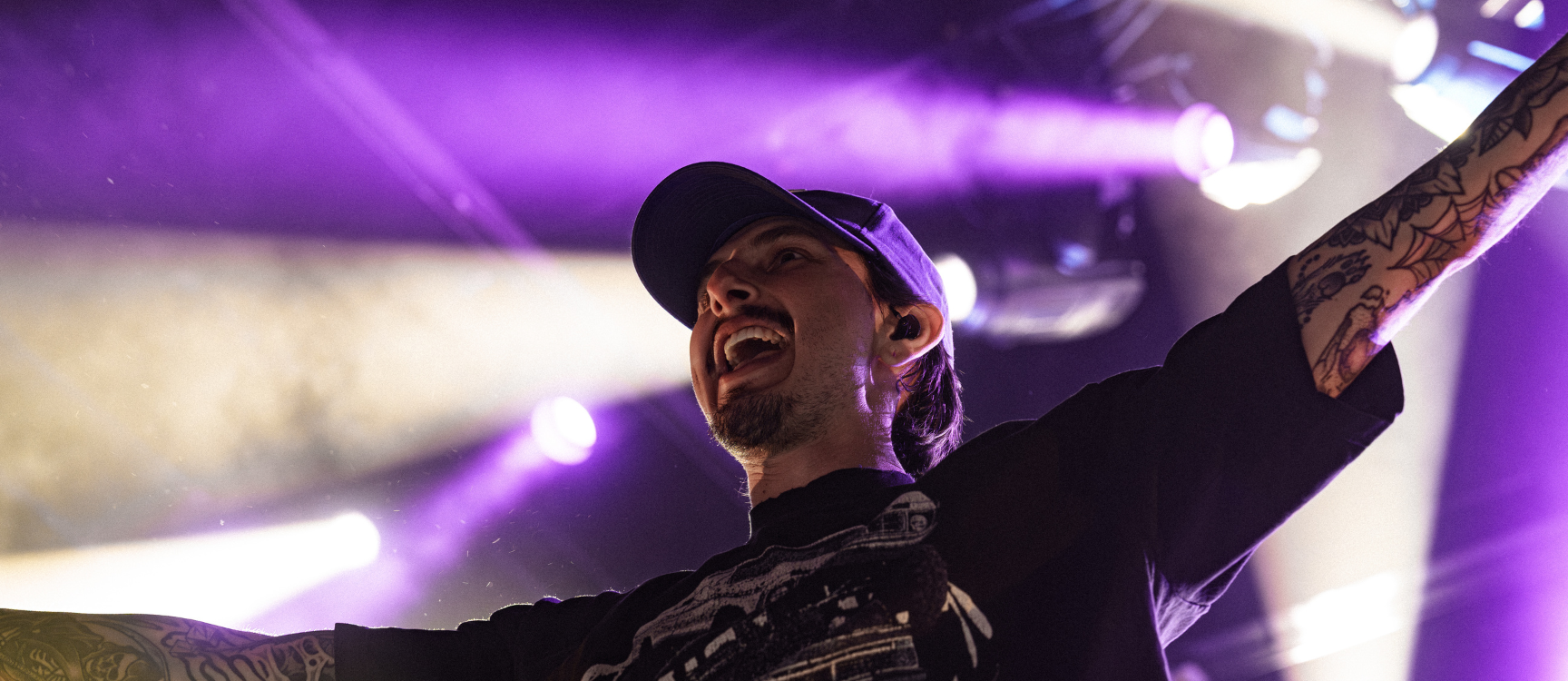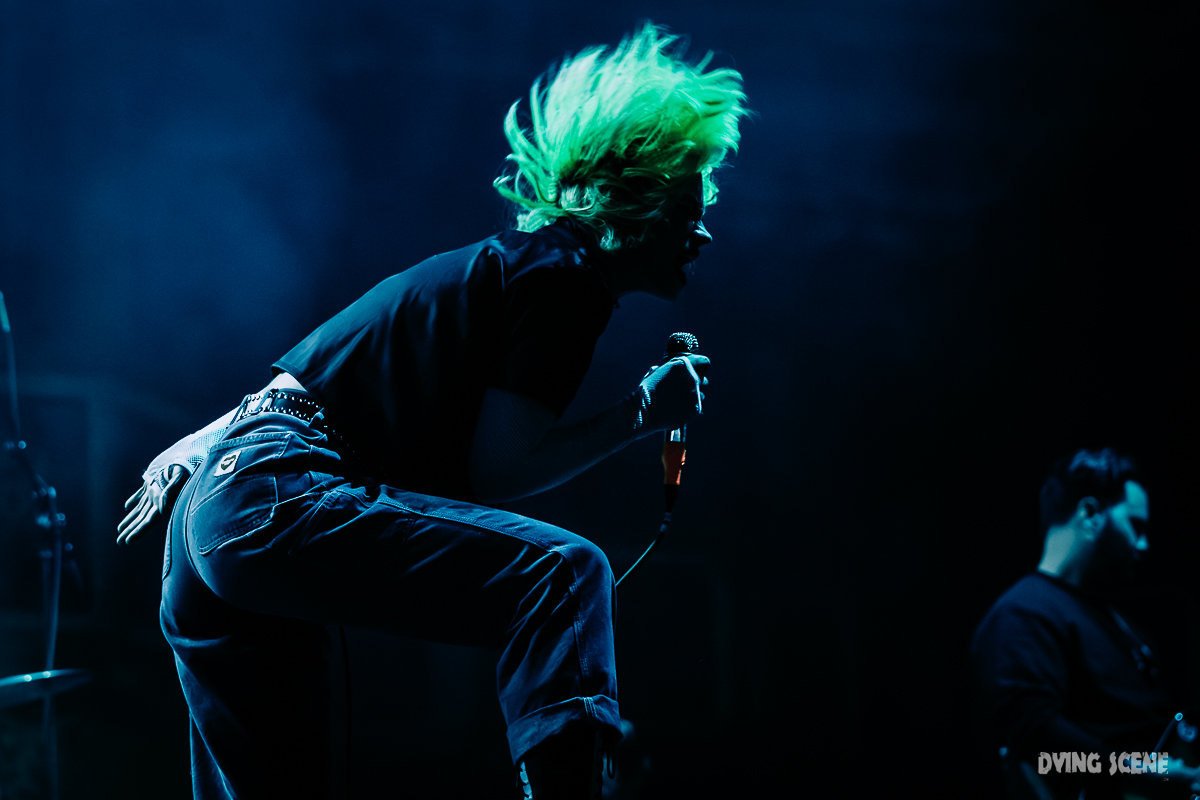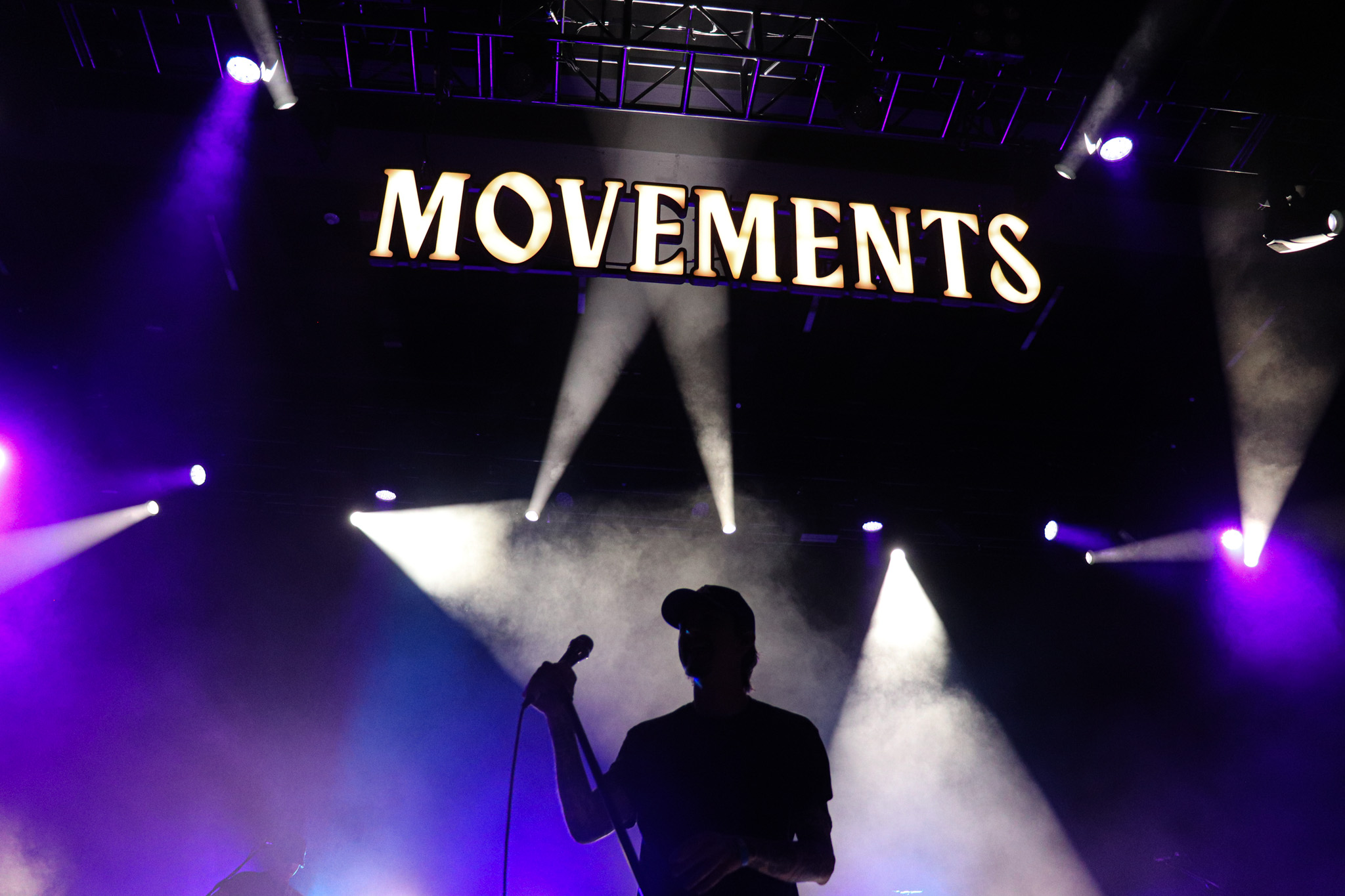By Tay Hansen, founder of Soundboard, a music media collective and creative studio.
Featured image by Brock Marlborough.
Scowl is one of the most exciting hardcore bands right now—and one of the most divisive. Fronted by Kat Moss, they’ve become a flashpoint for conversations around genre, gatekeeping, and the evolving face of punk and hardcore.
Their just-dropped album Are We All Angels (via Dead Oceans) is bold, emotional, melodic, and, for some, controversial. But for many of us, it’s precisely the kind of shake-up this scene needs.
As someone who’s been part of the punk and hardcore scene since I was 13, I’ve seen firsthand how closed off it can feel—especially to girls. When I was growing up, the scene around me was overwhelmingly masculine. There was only one punk girl at my school, and while I looked up to her, most of my journey into punk, hardcore, riot grrrl, and feminist punk happened alone. I didn’t have a crew of girls to trade zines with or go to shows with. For a long time, I didn’t even know that kind of community existed.

To see that landscape change—to see artists like Kat Moss take the stage in full neon glam and scream her guts out—is honestly wild. And badass.

Pictures by Brock Marlborough for Soundboard

Scowl emerged from the Northern California hardcore scene with all the raw aggression and energy that defines the genre. But their rise to prominence hasn’t come without friction. With Are We All Angels, the band makes it abundantly clear that they don’t intend to conform. They’re here to expand what hardcore can be.
The new record, produced by genre-bender Will Yip, leans into grungy riffs, soaring melodies, and moments of emotional clarity that contrast sharply with the band’s earliest, more punishing material. Tracks like “Not Hell, Not Heaven” and “B.A.B.E.” are pop-leaning, sure, but they hit just as hard. Moss is less interested in fitting into a box and more focused on making something real. In the process, Scowl is pushing back against a culture that often punishes women for standing out—especially when they refuse to shrink themselves to make others comfortable.
If you’ve spent any time in the hardcore scene, you know the brand of gatekeeping that starts to fester once a band finds success. For Scowl, things came to a head when they played a Taco Bell-sponsored halftime show during the Women’s World Cup. The internet backlash was immediate and brutal: sellouts, industry plants, not “real” hardcore. Kat, in particular, became a target—for her voice, appearance, social media, and presence.
But instead of backing down, Scowl doubled down. Are We All Angels doesn’t just respond to the noise—it transforms it. The album reflects the isolation, the exhaustion, and the complexity of carving out space in a genre that historically hasn’t made much room for softness, queerness, or feminine energy.
Artists like Kat Moss, Marisa Dabice (Mannequin Pussy), Ecca Vandal, Karen Dio, Die Spitz, Initiate, and so many others are redefining what heavy music can look and sound like. They are loud. They are stylish. They are unapologetically themselves. And they are, by far, making some of the most exciting music in the genre right now.
Scowl’s willingness to mix genres and textures doesn’t dilute their identity. Their music resonates because it reflects the emotional messiness and complexity that most of us carry. In a time when too many people still want to draw sharp lines around genre, identity, and legitimacy, Scowl is doing something radical: they’re refusing to choose. And in doing so, they’re making hardcore feel more accessible, more interesting, and more honest than it has in years.
Are We All Angels is more than an album.
It’s a challenge. To the gatekeepers. To the purists.
To anyone who forgot that punk was always supposed to be about breaking rules, not enforcing them.




